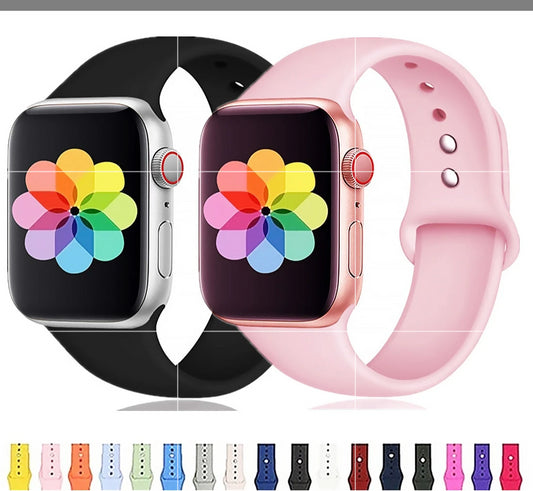Apple's Revolutionary Chipsets: Powering the Future of Technology

Share
Introduction:
In the fast-paced world of technology, one company that consistently manages to grab headlines and set trends is none other than Apple. From groundbreaking devices to cutting-edge software, Apple has remained at the forefront of innovation. In recent news, Apple's advancements in chip design have been making waves, revolutionizing the industry and shaping the future of technology. In this blog post, we'll dive into the latest developments surrounding Apple's chipsets and their impact on the company's products and the tech landscape as a whole.

-
The Transition to Apple Silicon:
In 2020, Apple announced its plans to transition its Mac lineup from Intel processors to its proprietary ARM-based chips, known as Apple Silicon. This monumental shift not only signifies Apple's desire for more control over its hardware, but it also promises enhanced performance, power efficiency, and seamless integration between devices. The first Apple Silicon-powered Macs hit the market to critical acclaim, demonstrating impressive speed and capabilities.
-
M1 Chip: Redefining Performance:
The M1 chip, Apple's first custom-designed processor for Macs, has been a game-changer. It combines an 8-core CPU, 8-core GPU, a 16-core Neural Engine, and unified memory architecture into a single chip. The result? Unparalleled speed and power efficiency. The M1 chip has not only boosted performance but also improved battery life, enabling Mac users to work and play for extended periods without worrying about recharging.

-
Expanded Apple Silicon Lineup:
Building on the success of the M1, Apple has expanded its Apple Silicon lineup, introducing the M1 Pro and M1 Max chips. Aimed at professionals and power users, these chips bring desktop-class performance to the MacBook Pro lineup. The M1 Pro features a 10-core CPU, up to 32-core GPU, and up to 32GB of unified memory. Meanwhile, the M1 Max takes things even further with a 10-core CPU, up to a staggering 64-core GPU, and up to a massive 64GB of unified memory. These chips redefine what's possible on a portable device, enabling tasks that were previously reserved for high-end desktop machines.
-
Advancements in Neural Engine:
Apple's dedication to artificial intelligence and machine learning is evident in its chipsets. The Neural Engine, a component dedicated to machine learning tasks, has seen significant advancements in recent years. With each iteration, Apple has increased the number of cores and improved performance, resulting in faster AI computations, better image and speech recognition, and more efficient processing of complex tasks. These advancements have profound implications for applications ranging from augmented reality (AR) to computational photography.
-
Impact on Apple's Product Ecosystem:
Apple's chip advancements have far-reaching implications for its entire product ecosystem. Whether it's the iPhone, iPad, Apple Watch, or Apple TV, each device benefits from custom-designed chipsets. The tight integration between hardware and software results in smoother performance, enhanced battery life, and seamless user experiences. Moreover, Apple's chip prowess enables the company to introduce features like Promotion display technology, advanced computational photography, and machine learning-powered features across its product lineup.
Conclusion:
Apple's relentless pursuit of innovation and its commitment to developing cutting-edge chipsets have solidified its position as an industry leader. The transition to Apple Silicon and the subsequent advancements in chip design have redefined what's possible on a variety of devices. The M1, M1 Pro, and M1 Max chips have showcased exceptional performance and power efficiency, making Apple products even more appealing to consumers and professionals alike. As Apple continues to push the boundaries of technology, the impact of its chipsets will undoubtedly shape the future of the tech industry as a whole, paving the way for new possibilities and groundbreaking innovations.






